Normal Elementary Phonics Worksheets for Ages 6-8
20 filtered results
-
From - To
Discover engaging Normal Elementary Phonics Worksheets designed for children aged 6-8. Our resources support early literacy development by focusing on essential phonics skills, including letter recognition, sound associations, and blending techniques. With a variety of fun activities and visually appealing designs, these worksheets make learning to read enjoyable and effective. Whether used in the classroom or at home, our printable worksheets encourage children to practice phonics in a structured yet playful environment. Foster a love for reading and build a strong foundation in phonics with our comprehensive collection, helping young learners excel on their educational journey. Explore our worksheets today!
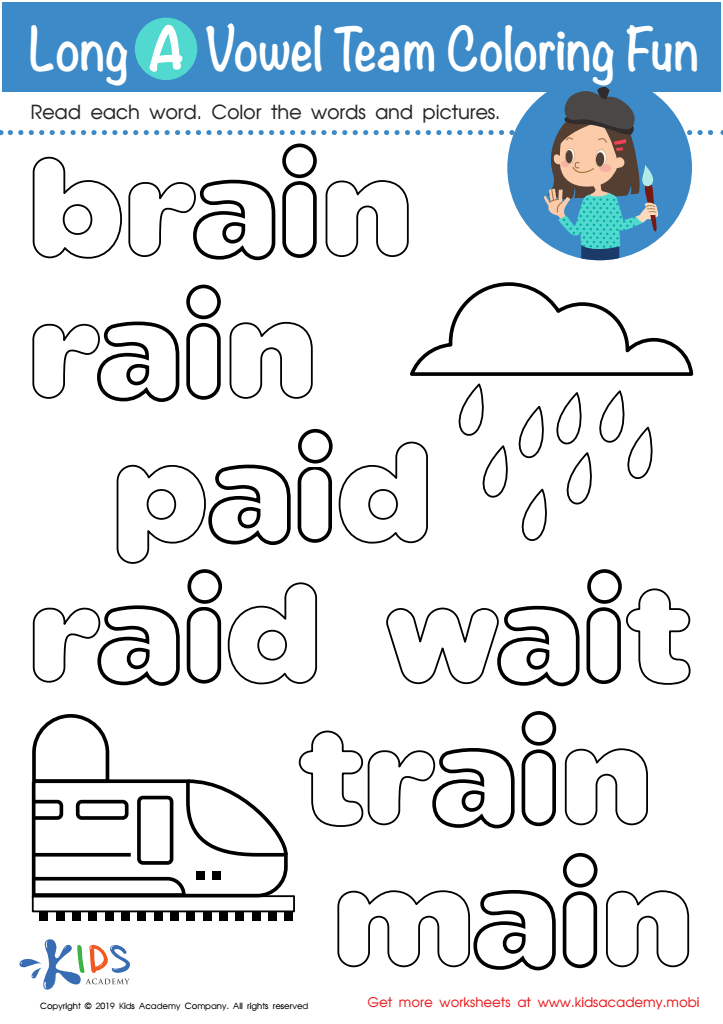

Long A Vowel Team Coloring Fun Worksheet
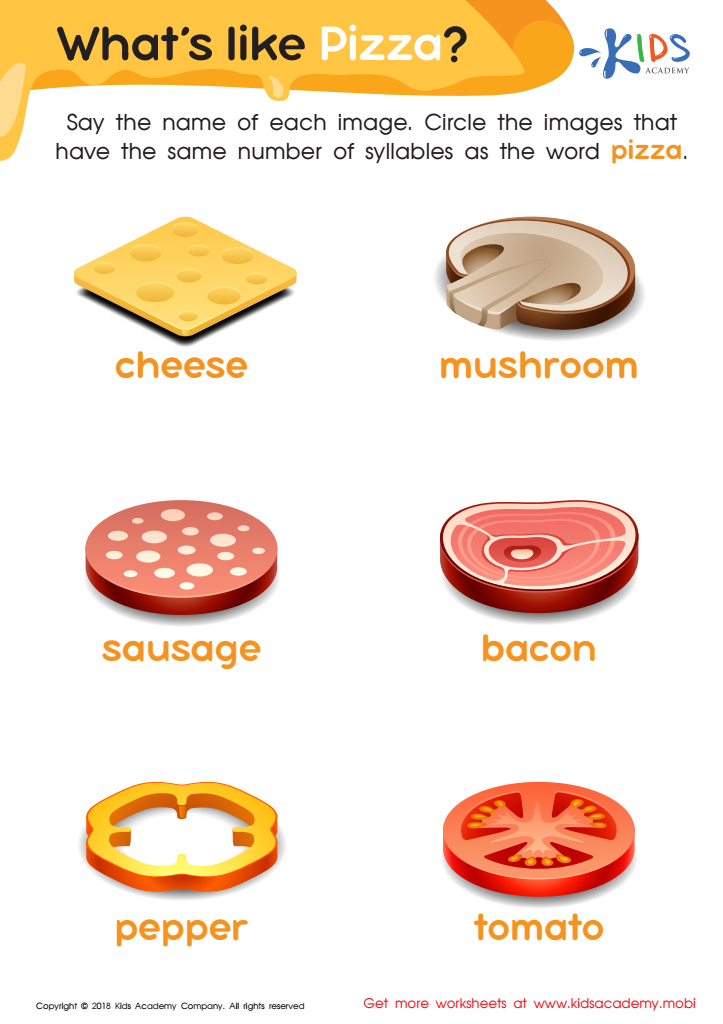

What's Like Pizza? Worksheet
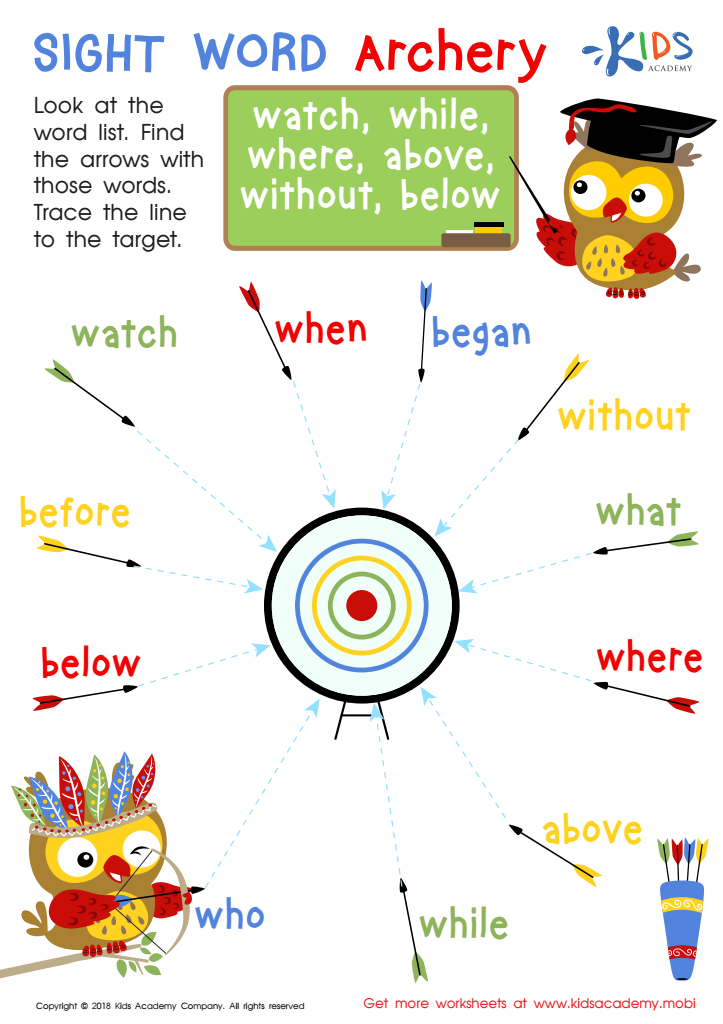

Sight Word Archery Worksheet
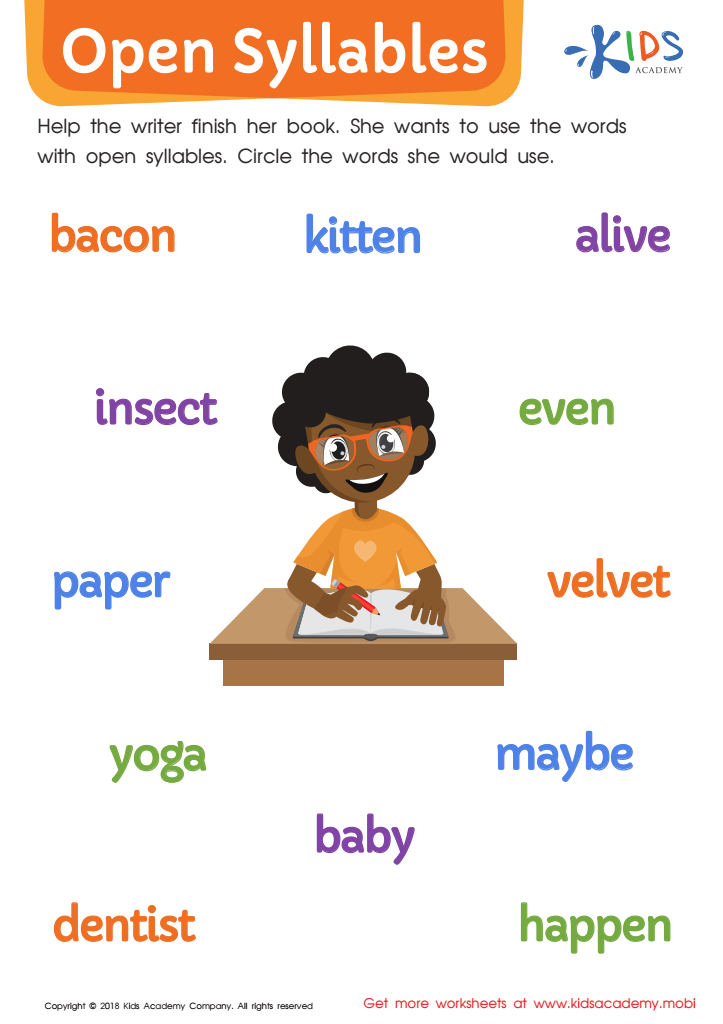

Open Syllables Worksheet
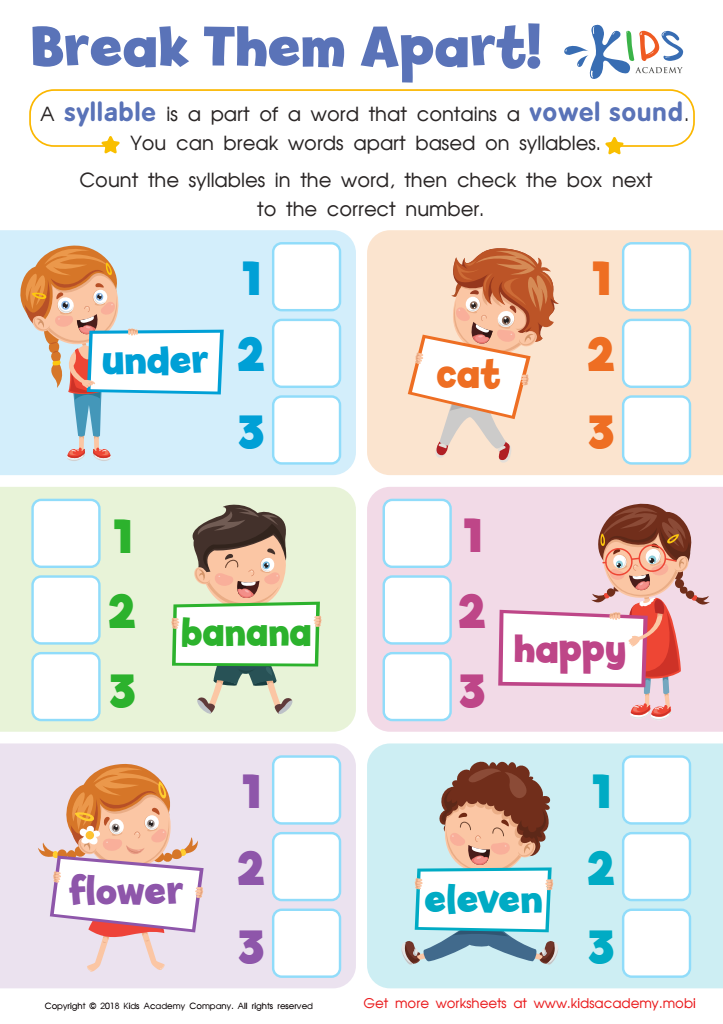

Reading: Break Them Apart Worksheet


Long and Short U Worksheet
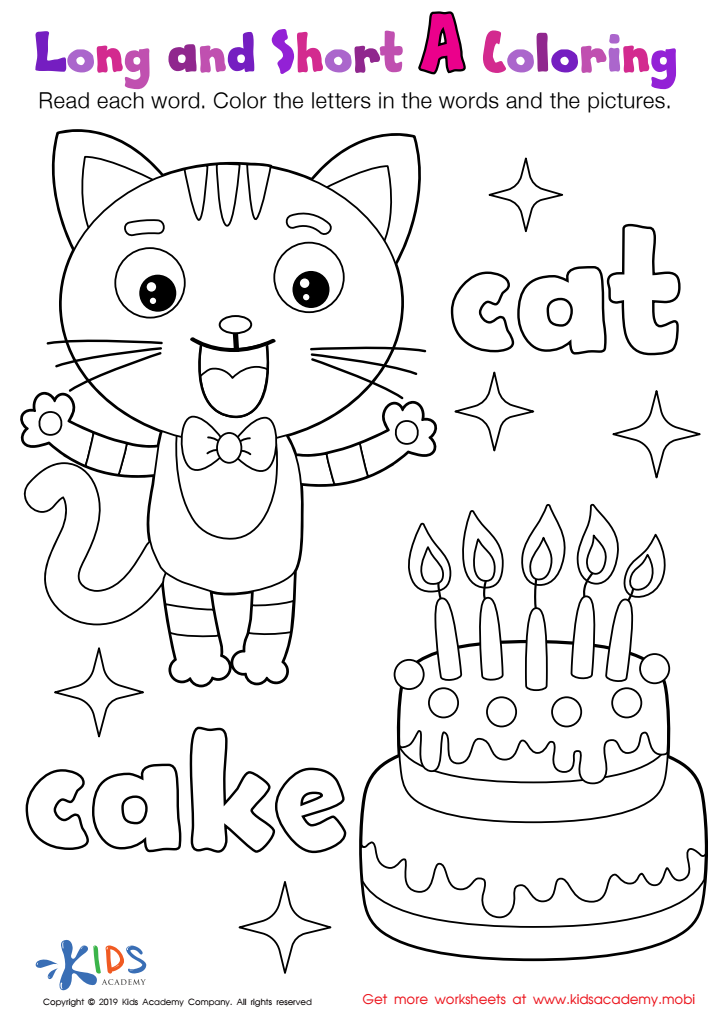

Long and Short A Worksheet
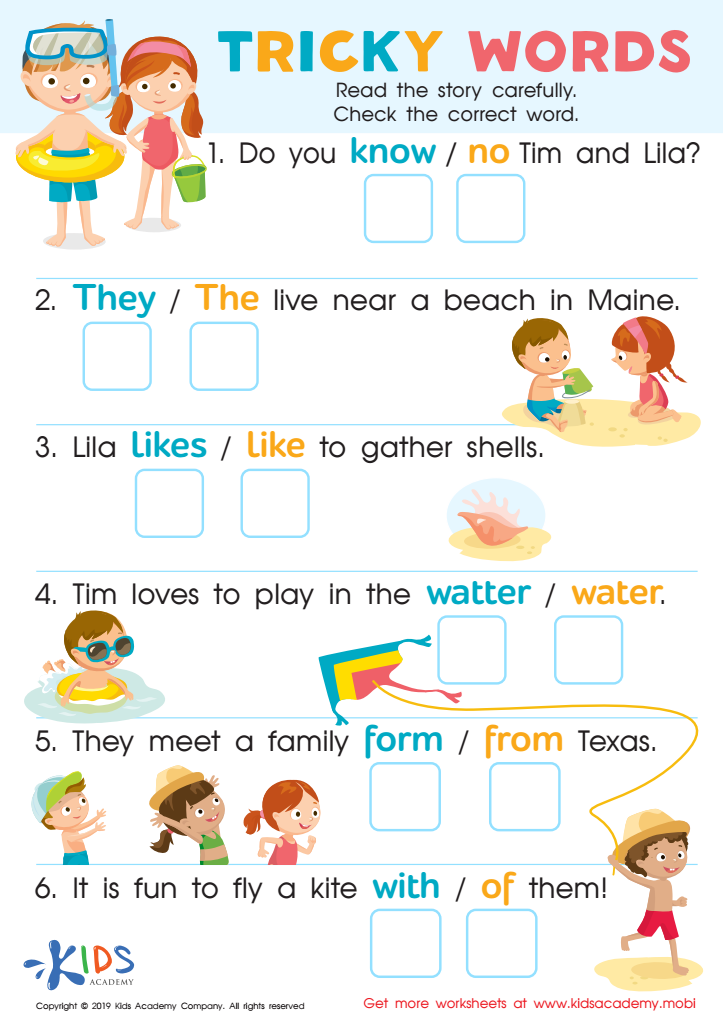

Tricky Words Worksheet
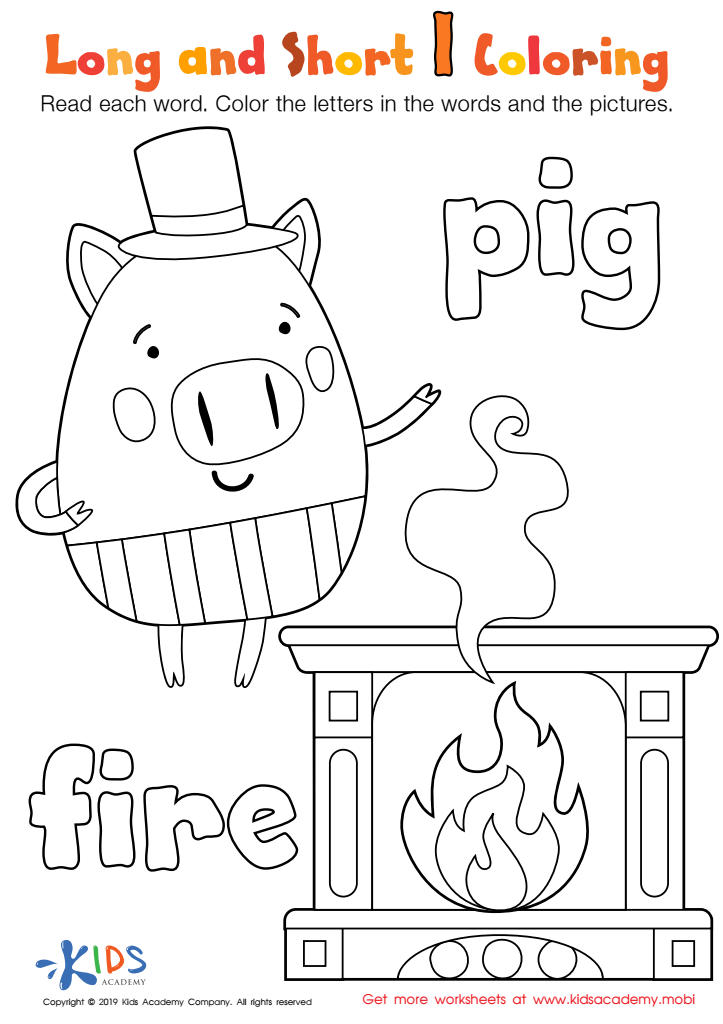

Long and Short I Worksheet
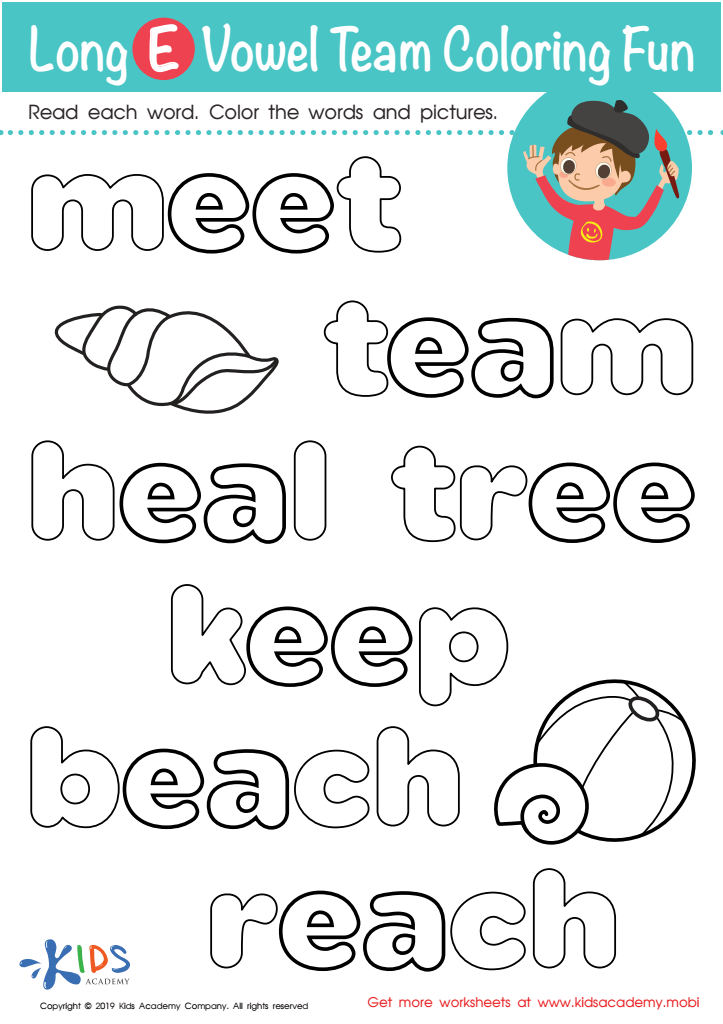

Long E Vowel Team Coloring Worksheet


Phonics and Word Recognition: Assessment 1 Worksheet
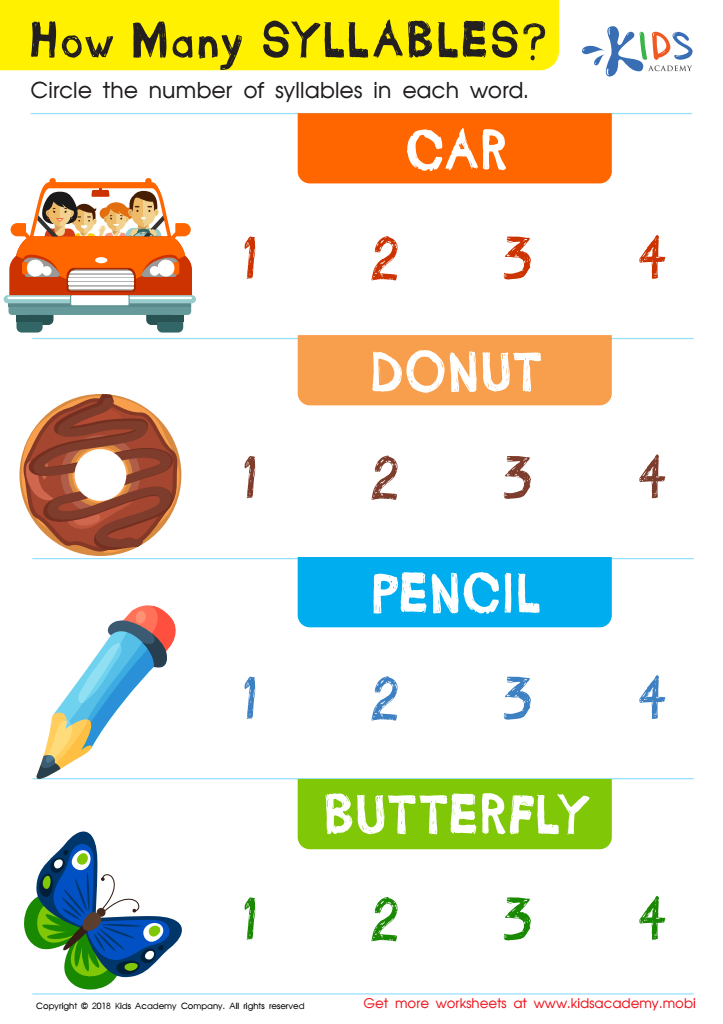

How Many Syllables? Worksheet
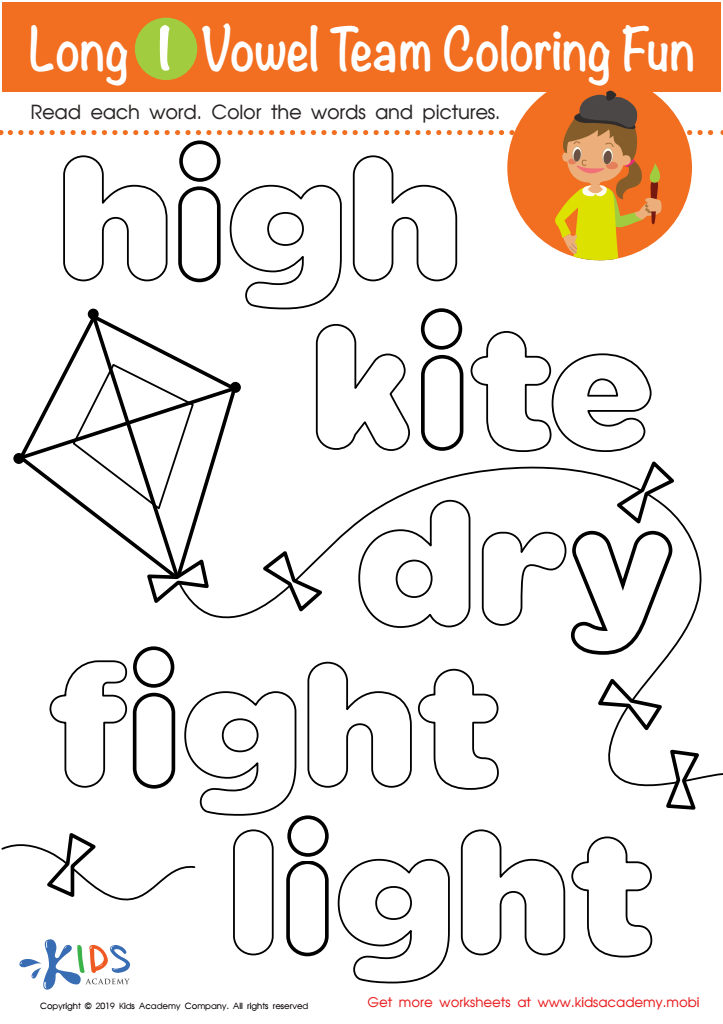

Long I Vowel Team Coloring Worksheet
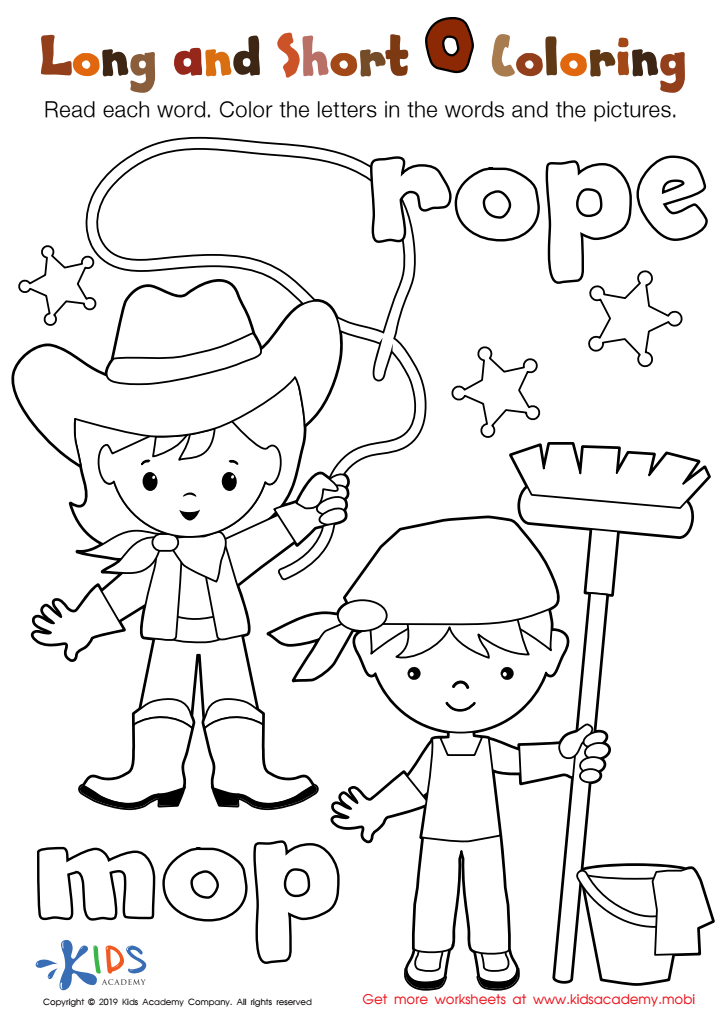

Long and Short O Worksheet
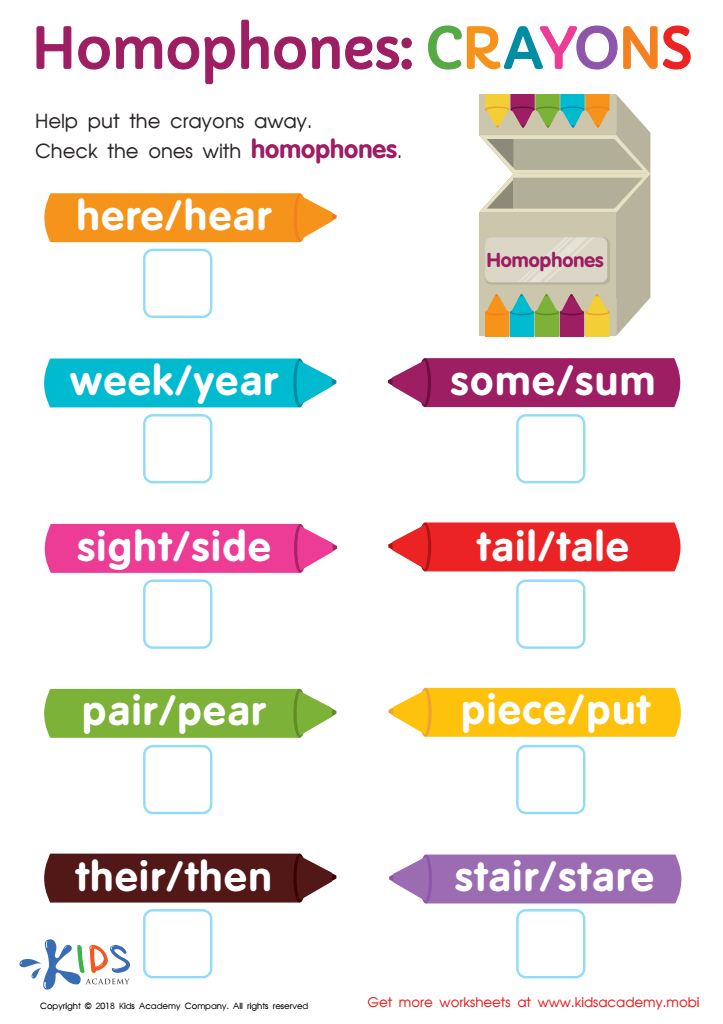

Homophones: Crayons Worksheet
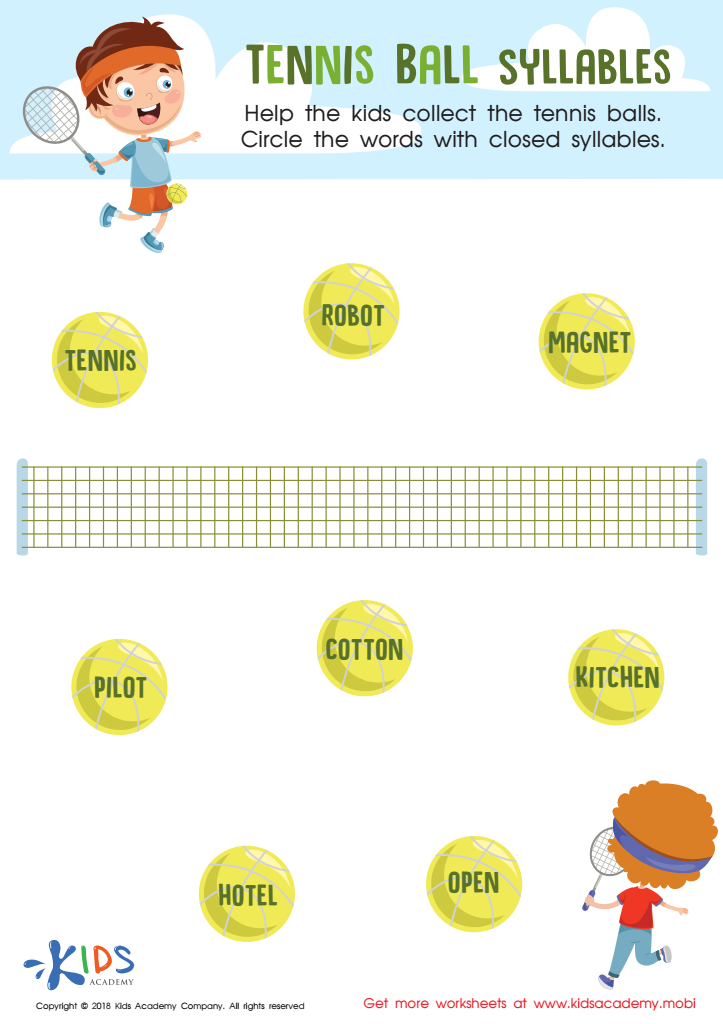

Tennis Ball Syllables Worksheet
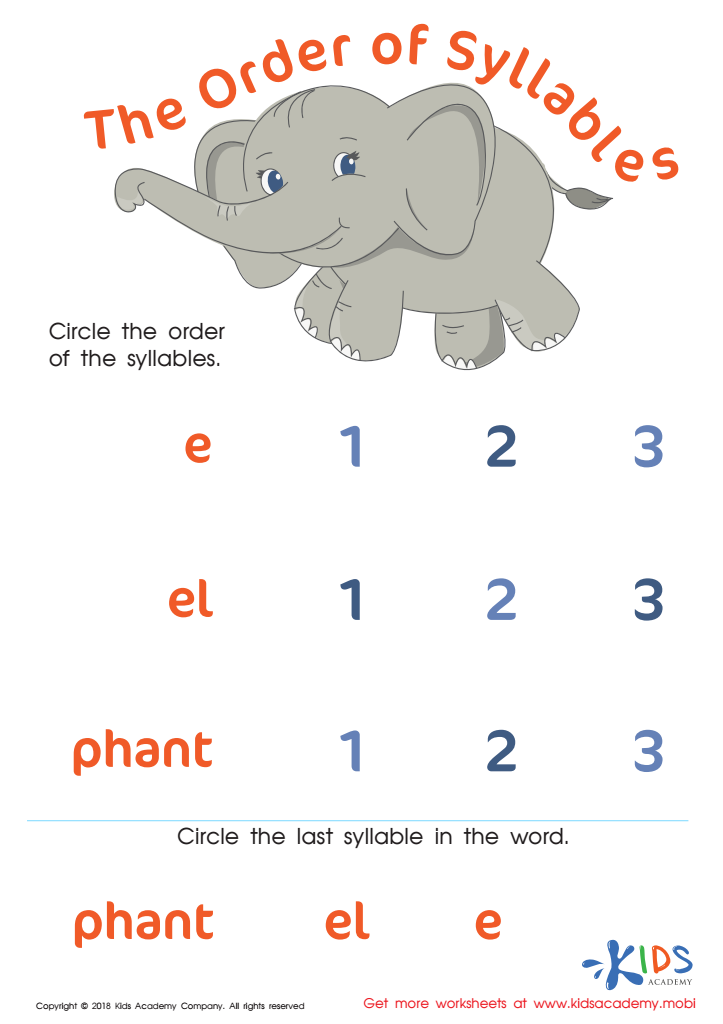

The Order of Syllables Worksheet


Long and Short E Worksheet
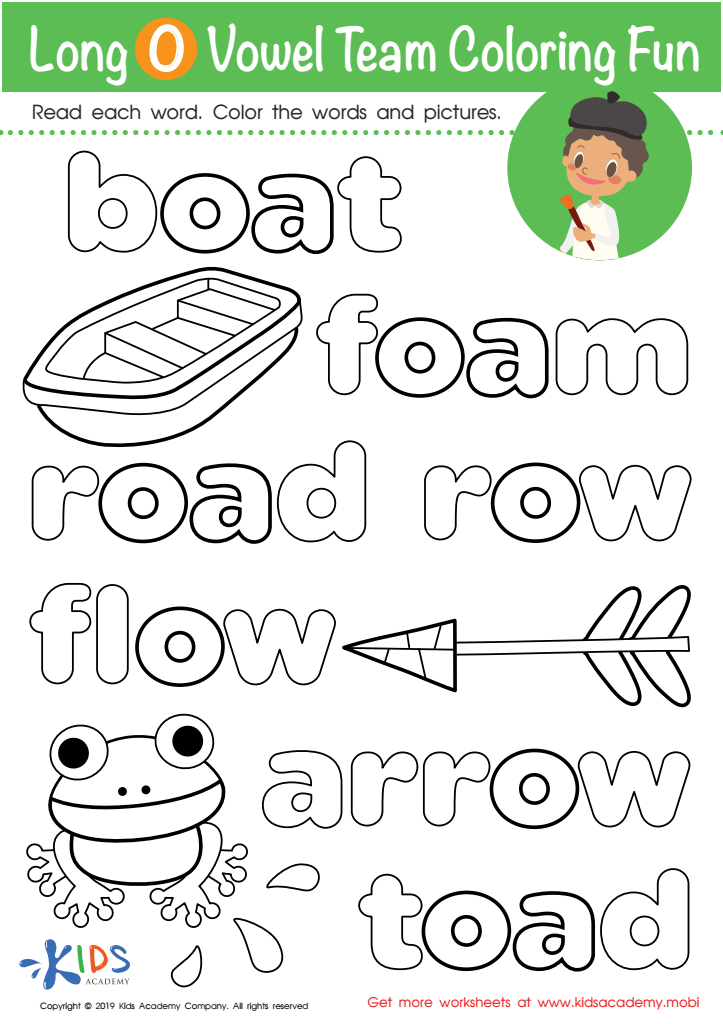

Long O Vowel Team Coloring Worksheet
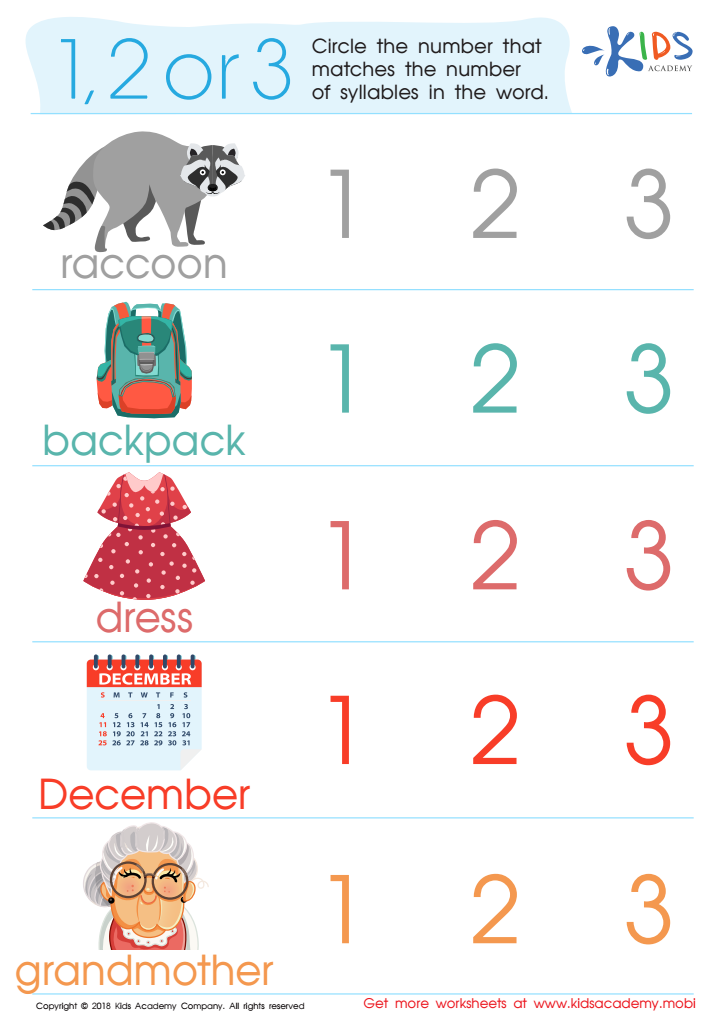

1, 2 or 3? Worksheet
Parents and teachers should care about Normal Elementary Phonics for Ages 6-8 because this foundational program is essential for developing young children's reading and writing skills. At this age, students are transitioning from learning to read to reading to learn, making phonics instruction crucial in building their decoding abilities. Early mastery of phonics provides the necessary tools for understanding how sounds correlate with letters, which significantly improves children's ability to tackle unfamiliar words independently.
Moreover, phonics instruction has been linked to improved reading fluency and comprehension, both of which are critical for academic success across subjects. A strong grasp of phonics also enhances children's confidence and motivation to read, leading to a love for literature that lasts a lifetime.
In addition, Normal Elementary Phonics helps address diverse learning needs, employing engaging activities that cater to various learning styles. It promotes critical thinking and language skills, reinforcing children’s overall cognitive development. By prioritizing phonics, parents and teachers can equip children with the skills needed to thrive in school and beyond, supporting a lifelong journey of learning and discovery. In essence, phonics is not just about reading—it is a gateway to enriching a child's educational experience.
 Assign to My Students
Assign to My Students













